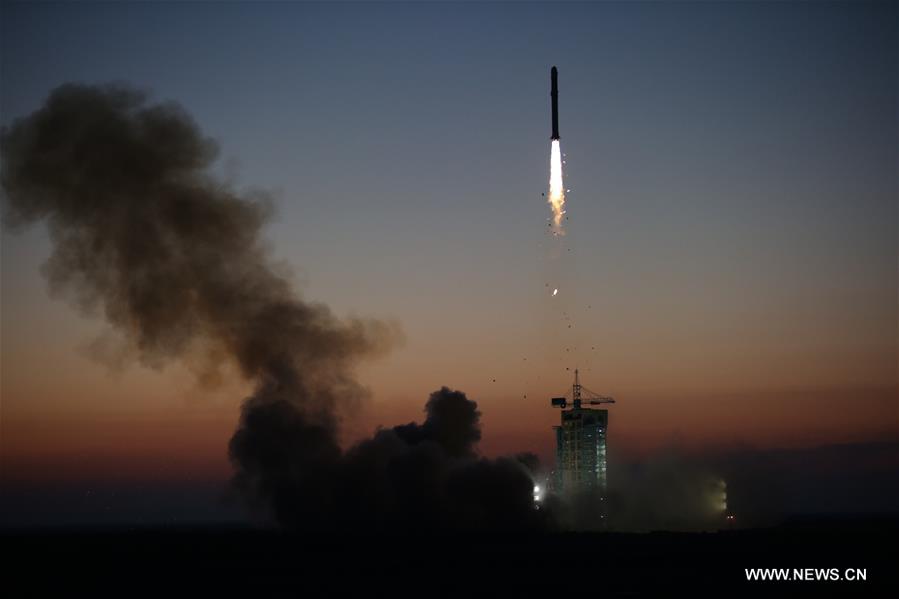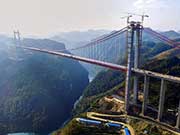

 |
| A Long March 2-D rocket carrying the Dark Matter Particle Explorer Satellite blasts off at the Jiuquan Satellite Launch Center in Jiuquan, northwest China's Gansu Province, Dec. 17, 2015. The satellite, nicknamed "Wukong" after the Monkey King with penetrating eyes in the Chinese classical fiction "Pilgrimage to the West", is the country's first space telescope in a fresh search for smoking-gun signals of dark matter, invisible material that scientists say makes up most of the universe's mass. [Photo: Xinhua] |
Chinese scientists say they plan to publish the first results from its dark matter probe within six months.
Chief scientist of China's Dark Matter Satellite Program, Chang Jin, says because the space environment of high-energy particles is complicated, a sufficient amount of high-energy particles has to be collected.
"Therefore, we can find some information about dark matter by analyzing these particles. According to our observation plan, we will take around two months to do the detective calibration. Within six months, we will publish the initial scientific results."
China launched its first dark matter satellite "Wukong" on Dec 17, and it started sending back its first set of observation data on Thursday.
Wu Ji with the Chinese Academy of Sciences says the satellite is operating as expected.
"The satellite is working well, and the actual payload is normal as well. Actually, the satellite from now on enters a two-month in-orbit testing phase."
The satellite has already circled the Earth more than 100 times.
It is designed to undertake a three-year space mission, but scientists hope it can be extended to five years.
Wukong will scan space nonstop in all directions in the first two years and then focus on areas where dark matter is most likely to be observed afterward.
Day|Week

 Spectacular aerial photos of the Three Gorges
Spectacular aerial photos of the Three Gorges Admit it! That is a High-way built by China
Admit it! That is a High-way built by China Photos of Beijing Film Academy student hit the Internet
Photos of Beijing Film Academy student hit the Internet Spectacular aerial photos of the Three Gorges
Spectacular aerial photos of the Three Gorges New balls please! Polish sports stars strip off for risqué calendar
New balls please! Polish sports stars strip off for risqué calendar A glance at life of Ukrainian models working in Chongqing
A glance at life of Ukrainian models working in Chongqing Contestants of Mrs. Globe pose for photo in Shenzhen
Contestants of Mrs. Globe pose for photo in Shenzhen
 Bikini models attend hot pot banquet in Hefei
Bikini models attend hot pot banquet in Hefei 118-meter-high Never-used Building in NW. China Demolished
118-meter-high Never-used Building in NW. China Demolished J-10B fighters with homegrown engine in test flight
J-10B fighters with homegrown engine in test flight